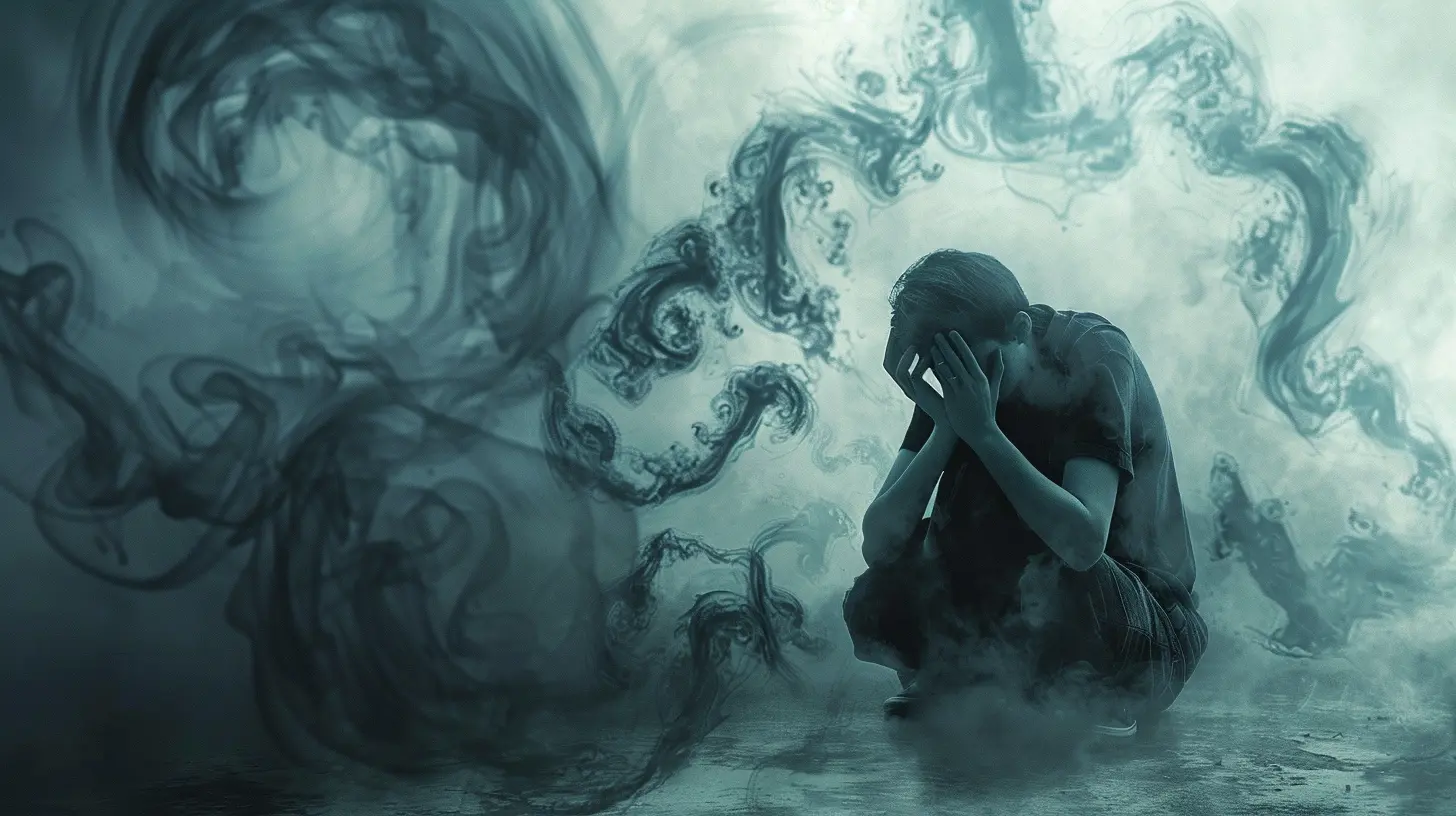The Psychology of Fear: Why We Feel Afraid
16 September 2025
Fear is one of the most powerful emotions we experience as humans. It can make our hearts race, our palms sweat, and our minds go into overdrive. But why do we feel afraid? What happens in our brains and bodies when fear kicks in? More importantly, how can we manage it?
In this article, we'll dive deep into the psychology of fear, breaking down why we feel afraid, how fear affects us, and what we can do to control it.

What Is Fear?
Fear is a survival mechanism—plain and simple. It’s our brain’s way of protecting us from danger. When we sense a threat, our body jumps into action, getting us ready to fight or flee.This response has been hardwired into us since the days of early humans. Imagine you're a caveman walking through the jungle, and you hear rustling in the bushes. Your heart rate spikes, your muscles tense up, and your brain goes into high alert. Why? Because that could be a predator getting ready to attack. If you don’t react quickly, you might not survive.
Even though we no longer face saber-toothed tigers, our brains still react to fear much the same way. The only difference? Today’s "predators" might be things like public speaking, social rejection, or financial stress.

The Science Behind Fear
So, what actually happens in our brains when we feel afraid? It all comes down to one key player: the amygdala.The Amygdala: Your Brain’s Fear Center
The amygdala is a small, almond-shaped part of the brain responsible for detecting fear and triggering our body's fight-or-flight response. When you encounter something scary, the amygdala sends a warning to the rest of your brain, setting off a chain reaction:1. Adrenaline Rush – Your body releases adrenaline, making your heart beat faster and sending more blood to your muscles. This prepares you to either fight or run.
2. Increased Awareness – Your senses sharpen. Your pupils dilate to take in more light, and your hearing becomes more sensitive.
3. Rapid Breathing – Your lungs take in more oxygen to fuel your muscles.
4. Sweating – Your body starts sweating to cool you down in case you need to run.
This all happens within milliseconds—before you even have time to think.

Types of Fear
Not all fears are the same. Psychologists categorize fear into different types based on origin and severity.1. Innate Fears
These are fears we're born with. For example, research shows that babies naturally fear loud noises and sudden drops. These fears are hardwired into our biology.2. Learned Fears
Most fears come from experience. Maybe you touched a hot stove as a child and got burned. Now, you instinctively pull your hand back whenever you get too close to heat.Phobias, like the fear of spiders (arachnophobia) or heights (acrophobia), often stem from past experiences, even if we don’t remember them.
3. Social Fears
Fear isn't just about physical danger. Many of us fear things like rejection, embarrassment, or failure. Public speaking, for instance, is one of the most common fears worldwide—not because it’s dangerous, but because the thought of being judged can feel overwhelming.4. Existential Fear
This is the fear of the unknown, the fear of death, or the fear of meaninglessness. Existential fears are deep-rooted and can lead to anxiety if not managed properly.
Why Fear Feels So Intense
Fear feels overwhelming because it takes over not just our minds, but our bodies too. When fear kicks in, logical thinking takes a backseat. This is why people panic in dangerous situations—because their emotional brain (amygdala) overpowers their logical brain (prefrontal cortex).This is also why some fears feel irrational. Have you ever known something shouldn’t scare you, but it still does? That's because fear isn’t always logical—it’s emotional.
The Impact of Fear on Our Lives
Fear isn’t always bad. In fact, it serves an important purpose. It keeps us safe, helps us avoid danger, and even pushes us to grow. But when fear becomes excessive, it can hold us back.Fear Can Be Paralyzing
Have you ever been so scared that you couldn’t move? This is called the freeze response. Sometimes, instead of fighting or fleeing, our body shuts down completely.Fear Can Lead to Anxiety
When fear becomes chronic, it turns into anxiety. Unlike fear (which happens in response to a specific threat), anxiety is more generalized. It makes us worry about things that might happen, even when there’s no immediate danger.Fear Can Control Our Decisions
Fear can stop us from taking risks, trying new things, or stepping outside our comfort zones. Think about someone who wants to start their own business but never does because they're afraid of failure. Fear can be a dream-killer if we let it.
How to Overcome Fear
So, if fear is such a powerful force, how do we stop it from controlling our lives? Here are some proven strategies:1. Face Your Fears
Avoiding fear only makes it grow stronger. The best way to conquer fear is through exposure. Slowly and gradually exposing yourself to what you fear can help desensitize your brain.For example, if you're afraid of public speaking, start by speaking in front of a mirror, then to a small group, and eventually to a larger audience.
2. Challenge Your Thoughts
Fear often comes from irrational thoughts. If you're afraid of failure, ask yourself: What’s the worst that could happen? More often than not, the fear is worse than the reality.3. Practice Mindfulness & Deep Breathing
When fear takes over, our breathing becomes shallow. Practicing deep breathing can help calm the nervous system. Try the 4-7-8 technique:- Inhale for 4 seconds
- Hold for 7 seconds
- Exhale for 8 seconds
This slows down the fight-or-flight response and helps you regain control.
4. Reframe Fear as Excitement
Did you know that fear and excitement trigger the same physical response? Your heart races, your hands shake, and adrenaline rushes through your body. Instead of saying, “I’m scared,” try reframing it as, “I’m excited.” This simple shift in mindset can make a huge difference.5. Seek Professional Help If Needed
If fear or anxiety is affecting your daily life, therapy can help. Cognitive Behavioral Therapy (CBT) is particularly effective at helping people overcome fear by changing negative thought patterns.Final Thoughts
Fear is a natural part of life—it protects us, pushes us, and shapes our experiences. But when it holds us back, we have to take action. Understanding the psychology of fear is the first step in learning how to manage it.So, the next time fear creeps in, remind yourself: fear isn’t the enemy. It’s just a signal. And with the right tools, you can take back control.
all images in this post were generated using AI tools
Category:
PsychologyAuthor:

Eliana Burton
Discussion
rate this article
1 comments
Parker McKee
Fear is a primal response, deeply rooted in our biology. Understanding its psychological underpinnings not only helps in managing it but also empowers us to confront challenges, transforming fear into a catalyst for growth.
September 29, 2025 at 2:53 AM

Eliana Burton
Absolutely! Fear can indeed be a powerful motivator for growth when we learn to understand and manage it effectively. Thank you for your insight!


